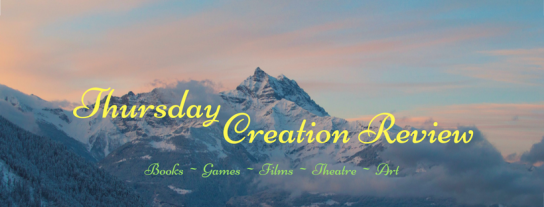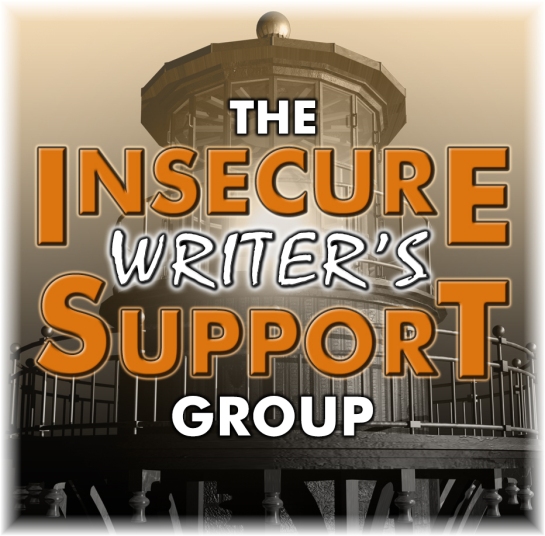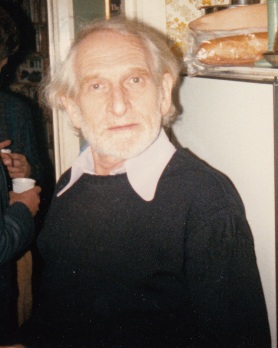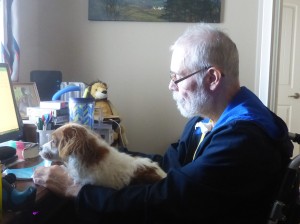
NaNoWriMo might be my focus for November but I am making time for this Thursday Creation Review as this book seems timely with a strong message.

The Ragged Edge of Night
by
For fans of All the Light We Cannot See, Beneath a Scarlet Sky, and The Nightingale comes an emotionally gripping, beautifully written historical novel about extraordinary hope, redemption, and one man’s search for light during the darkest times of World War II.
Germany, 1942. Franciscan friar Anton Starzmann is stripped of his place in the world when his school is seized by the Nazis. He relocates to a small German hamlet to wed Elisabeth Herter, a widow who seeks a marriage—in name only—to a man who can help raise her three children. Anton seeks something too—atonement for failing to protect his young students from the wrath of the Nazis. But neither he nor Elisabeth expects their lives to be shaken once again by the inescapable rumble of war.
As Anton struggles to adapt to the roles of husband and father, he learns of the Red Orchestra, an underground network of resisters plotting to assassinate Hitler. Despite Elisabeth’s reservations, Anton joins this army of shadows. But when the SS discovers his schemes, Anton will embark on a final act of defiance that may cost him his life—even if it means saying goodbye to the family he has come to love more than he ever believed possible.
Review 5 stars
Although the pace was slower than many of my usual reads, the setting of a rural village in World War II Germany made for an underlying threat that drove the story forward. The pace matched the reality portrayed.
The influence of Hitler and his Nazis seeped into the story, although the main protagonist Anton Starzmann was building a new life with Elisabeth Herter, a widow with three children in rural surroundings. His past as a Franciscan friar, whose pupils have been ‘relocated’ by the SS, haunts his gradual attempt to take a stand against the Nazi evil.
Early on he hears a conversation that becomes fundamental:
“Her companion is quick to answer, quick to defend. “It’s only this: I’ve never seen God. Why should I credit Him for a blessing, or leave Him any blame? Men are quite capable of destroying the world on their own, as we can plainly see. They don’t need any help from above.”
Anton observes that he hasn’t met Hitler, but the Fuehrer’s evil exists – and he resists. The musical instruments of his condemned pupils become central to that stand, and not just in their re-use – far better than what the Nazis plan for them.
“I’ve heard the Party are paying good money for brass. The Schutzstaffel want it for casings—ammunition.”
I wondered if music could foil the savage beast and, in a way, it became a means to take a stand. I shared the fear that the resistance within Germany and the village of Unterboihingen, called the Red Orchestra would be exposed and killed.
It didn’t matter that I knew the outcome of WWII as I didn’t know whether anything about that resistance. It’s a sad fact that it became easier for others to see all Germans as evil. Having had a German girlfriend, I know that isn’t true. And this book confirms that there was a lot of good alive, and people trying to survive.
The characters from Anton to minor characters come alive as the story builds and I became invested in their lives.
The village and its surroundings are beautifully described, and the language is so evocative of the hard but special life that Anton and his new family are living. The war rages and the nightly bombing of nearby Stuttgart threaten behind the village life that attempts to continue, using lessons and practises of the past. Barter replaces money – as it did in many countries.
There are highlights to enrich the children’s lives like precious Easter eggs, chocolates and simple handmade gifts.
The end and the impending terror draws closer when a ruthless act forces a final act of defiance.
The story resonated so much with me that I was pleased to discover that it is based on real events. And that makes it relevant to today when Neo-Nazis are on the rise everywhere.
But as the author says:
“We are Widerstand—resistance—you and I. No force can silence us, unless we permit silence. I prefer to roar.”
This book was an Amazon First Reads free with my Prime membership, and even if I’d paid the proper price The Ragged Edge of Night would be a recommended must read.
Story – five stars
Setting/World-building – five stars
Authenticity – five stars
Characters – five stars
Structure – five stars
Readability – five stars
Editing – five stars




 Setting plays a key role in not only my writing as I met Jane wearing a different hat. Back in 2005, I was co-organiser of Borde Hill Horse Trials held at my family home which I’ve always felt was the right setting for horse events. Jane was part of our amazing team as one of the experienced dressage judges. Most eventing shows that I ever attended as a professional equestrian journalist and photographer were in glorious locations – the pinnacle being Badminton.
Setting plays a key role in not only my writing as I met Jane wearing a different hat. Back in 2005, I was co-organiser of Borde Hill Horse Trials held at my family home which I’ve always felt was the right setting for horse events. Jane was part of our amazing team as one of the experienced dressage judges. Most eventing shows that I ever attended as a professional equestrian journalist and photographer were in glorious locations – the pinnacle being Badminton.